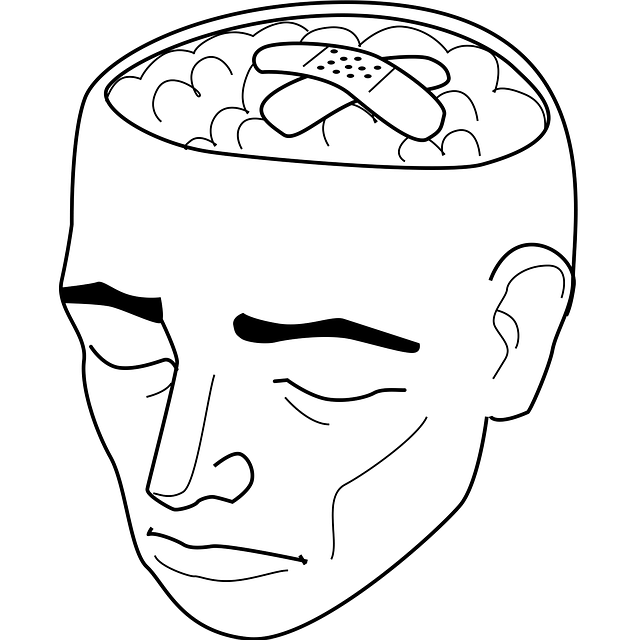Louisville First Responders Therapy (LFRT) tackles the unique mental health challenges faced by first responders in stressful cities like Louisville. They've developed specialized self-assessment tools that enhance self-awareness, improve stress management, and promote positive changes in self-esteem. These evidence-based tools integrate into daily routines, enabling better coping mechanisms and resilience. LFRT offers individual therapy, group support, and training programs, while advocating for systemic mental health policy changes. Their comprehensive assessment process, from research to implementation, focuses on first responders' specific needs related to stress, anxiety, and trauma. They measure success through both quantitative data and qualitative feedback, ensuring continuous improvement based on outcomes and user experiences.
Mental wellness self-assessment tools play a pivotal role in promoting individual well-being and identifying areas for improvement. This article delves into the development of such tools, highlighting their growing importance. We explore a case study of Louisville First Responders Therapy, an innovative program demonstrating the power of tailored assessments. Key components of effective mental health tools are dissected, followed by a step-by-step development process and strategies for measuring success and continuous improvement.
- Understanding the Need for Mental Wellness Self-Assessment Tools
- Louisville First Responders Therapy: A Case Study in Innovative Approach
- Key Components of an Effective Mental Health Assessment Tool
- Development Process: From Concept to Implementation
- Measuring Success and Continuous Improvement Strategies
Understanding the Need for Mental Wellness Self-Assessment Tools

In today’s fast-paced and often stressful world, mental wellness is a cornerstone of overall health and well-being. This is especially true for first responders in Louisville, who face unique challenges on a daily basis, including trauma exposure, shift work, and high-stress situations. Understanding and managing mental health proactively is crucial to their resilience and ability to serve the community effectively. This need has underscored the development of mental wellness self-assessment tools tailored for first responders, such as those offered by Louisville First Responders Therapy.
These assessment tools play a pivotal role in enhancing self-awareness, facilitating self-esteem improvement, and providing valuable insights into an individual’s mental health status. Beyond helping first responders recognize potential issues, they also serve as effective risk assessment mechanisms for mental health professionals. By incorporating self-awareness exercises into their routine, these tools enable individuals to better navigate life’s challenges, improve coping strategies, and ultimately foster a more positive mental wellness journey.
Louisville First Responders Therapy: A Case Study in Innovative Approach

Louisville First Responders Therapy (LFRT) serves as a compelling case study showcasing an innovative approach to mental wellness self-assessment tools development. This organization has been at the forefront of addressing the unique challenges faced by first responders, who often grapple with high stress levels and trauma due to their demanding professions. LFRT recognized the need for specialized support and developed tailored interventions that cater to these specific populations.
Through a combination of individual therapy sessions, group support, and comprehensive training programs, LFRT offers an integrated approach to mental health care. Their strategies include Stress Management Workshops Organization, focusing on resilience-building techniques and coping mechanisms. Additionally, they emphasize the importance of Risk Management Planning for Mental Health Professionals, ensuring that first responders have access to resources and safety nets while on the job. LFRT’s commitment extends beyond therapy; it involves advocates pushing for better Mental Health Policy Analysis and Advocacy, aiming to create systemic changes that prioritize the well-being of these essential workers.
Key Components of an Effective Mental Health Assessment Tool

An effective mental health assessment tool should encompass several key components to ensure accurate evaluation and support individuals’ mental wellness. Firstly, it must be comprehensive, covering various aspects of mental health such as emotional well-being, stress levels, anxiety, depression, and trauma history. Tools like Louisville First Responders Therapy demonstrate this by integrating multiple scales to assess diverse psychological domains. This holistic approach allows for a more nuanced understanding of an individual’s mental state, enabling tailored interventions.
Secondly, the assessment should be evidence-based, utilizing validated questionnaires and criteria from recognized mental health organizations. Public Awareness Campaigns Development can play a role here by educating the public on recognizing mental health issues, leading to earlier detection and improved assessment accuracy. Additionally, incorporating features for risk management planning is vital, especially in high-pressure settings like emergency services, where Mental Health Education Programs Design can help professionals identify at-risk individuals and implement appropriate measures.
Development Process: From Concept to Implementation

The development process of a mental wellness self-assessment tool, like Louisville First Responders Therapy, is a meticulous journey that requires careful planning and execution. It begins with identifying specific needs within the community or target population, in this case, first responders who often face unique challenges related to stress, anxiety, and trauma. Researchers and mental health professionals collaborate to conceptualize an effective assessment framework, ensuring it aligns with current best practices and evidence-based treatments.
This phase involves extensive research and pilot testing. The tool is designed to be user-friendly, offering a structured yet adaptable platform for individuals to assess their mental wellness. Incorporating elements of inner strength development, positive thinking, and confidence boosting, the assessment guides users through a series of questions tailored to various aspects of mental health. Feedback from initial users helps refine the tool, ensuring its sensitivity, specificity, and cultural relevance before full implementation.
Measuring Success and Continuous Improvement Strategies

Measuring success is a vital component of developing effective mental wellness self-assessment tools. At Louisville First Responders Therapy, we employ various quantitative and qualitative methods to gauge progress and impact. This includes tracking changes in participant scores on standardized assessments, collecting feedback through surveys and interviews, and observing improvements in day-to-day functioning. By setting clear metrics and benchmarks, we can ensure that our programs are achieving the desired outcomes and making a tangible difference in individuals’ lives.
Continuous improvement is equally important. We actively analyze data from various sources to identify areas for enhancement and tailor our strategies accordingly. This involves refining communication strategies to improve engagement, incorporating evidence-based practices for resilience building and mood management, and adapting program content based on ongoing feedback. Such dynamic approaches ensure that our self-assessment tools remain relevant, effective, and aligned with the evolving needs of those seeking mental wellness support.
The development of mental wellness self-assessment tools, as exemplified by the innovative practices at Louisville First Responders Therapy, is a significant step towards empowering individuals to take charge of their mental health. By incorporating key components like accessibility, validity, and user-friendliness, these tools can effectively support those in need, especially in high-risk professions. Continuous improvement through feedback loops ensures their effectiveness in navigating the complex landscape of mental wellness assessment. As we move forward, such tools have the potential to revolutionize access to care, making it more accessible and less intimidating, just as Louisville’s approach has done for its first responders.














